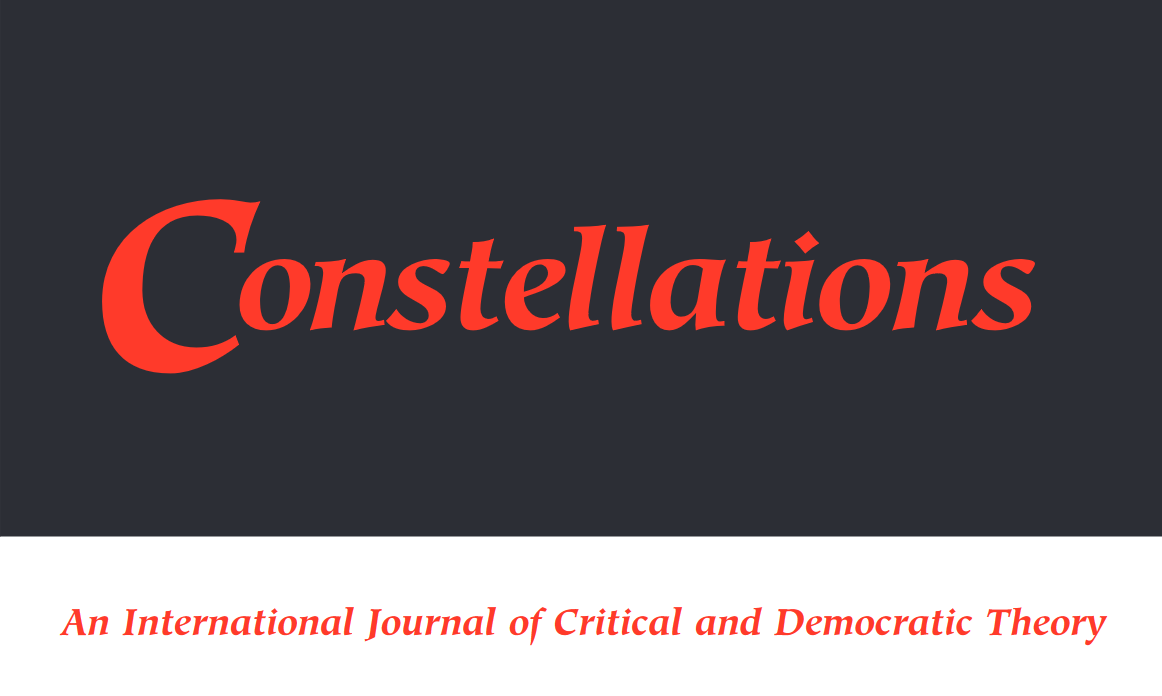Identity politics and the democratization of democracy. Oscillations between power and reason in radical democratic and standpoint theory - New Article in Constellations

Identity politics is necessary for the democratization of democracy, because only through identity politics can the general public acquire an understanding of discriminatory structures. In order to correct universal reason, identity political standpoints should be privileged. How can this thesis be defended without falling into identity-political fundamentalism and relativism? You find the answer in my new open-access article in Constellations.
Abstract
Identity politics is commonly criticized as endangering democracy by undermining community, rational communication, and solidarity. Drawing on both radical democratic theory and standpoint theory, this article posits the opposite thesis: identity politics is pivotal for the democratization of democracy. Democratization through identity politics is achieved by disrupting hegemonic discourse and is, therefore, a matter of power, while such forms of power politics are reasonable when following minority standpoints generated through identity politics. The article develops this approach by connecting radical democratic theories with standpoint theories and highlighting their commonalities and potential for mutual enhancement. Standpoint theory allows us to substantiate and reconcile two initially contradictory claims: particular minority standpoints are necessary to criticize the prevailing discursive and institutional orders, and these standpoints stem from intersubjective reason and embody ‘strong objectivity.’ This discussion presents a new perspective on the tension between particularity and universality, as well as the relationship between power and reason in democracy. Democratization is an oscillation between these polarities, and political theory should not aim to resolve this tension but to recognize and articulate it. Such recognition might involve elevating knowledge emerging from oppressed groups and exercising epistemic modesty when assessing specific forms of identity politics.
Cite, read, and download
Schubert, Karsten (2023): Identity politics and the democratization of democracy. Oscillations between power and reason in radical democratic and standpoint theory. In: Constellations, online first. https://doi.org/10.1111/1467-8675.12715
Shorter is always possible
I published some core arguments of the article in a short German and English blogpost, which you can find here. Please be aware that the blog versions are based on an older manuscript; the article offers a more nuanced version of the arguments.
Related Posts
- The tension between universalism/particularism and reason/power in democracy. New English and German short texts, 22. November 2022
- New Publication: Constructivist Identity Politics. Why Democracy Requires Particular Positioning (Journal of Political Science), 25. October 2021
- New article: Democratization Through Filter Bubbles. Affordances of Closures and Openings (in German), 26. June 2023
- New Article: A matter of elites? Identity politics between democratic representation and elite capture - APuZ Schriftenreihe, 14. February 2023
- Fellowship at FRIAS: One year for research on identity politics and elite capture!, 4. October 2022
Identity PoliticsDemocracyStandpoint EpistemologyUniversalismParticularismReasonPowerRadical Democracy
336 Words
2023-10-04 08:50 +0200